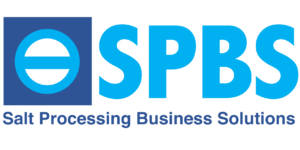Why is iodine important? Iodine is one of the most important element in the production of thyroxine Hormone by the thyroid gland. Deficiency of iodine in the diet could lead to the deficiency of Thyroxine hormone in body. With iodine deficiency listed as the leading cause of mental retardation around the world, iodine is an important component for healthy brain development. Iodine is a crucial nutrient throughout life, but especially during pregnancy, the most damaging consequences are on fetal and infant development of the brain when deficiency can cause irreversible brain damage that lasts a lifetime. Brain damage, cretinism, mental retardation and other conditions are additional risks. Less severe iodine deficiency manifests as below average IQ in children, including impaired brain function in adults too. Severe iodine deficiency may reduce a child’s IQ by 10-15 points, resulting in poorer school performance and worse economic prospects later in life. Iodine deficiency can impair the social and economic wellbeing of entire communities and linked to reduced intellectual and motor performance, as well as an increased risk for ADHD in children.
What is the Universal Salt Iodization program? Universal salt iodization (USI) is the main strategy to eliminate iodine deficiency. Over the past two decades, national salt iodization programs have been introduced and scaled up in many countries. The basic concept of USI implies that all edible salt (household, processed food and animal salt) should be iodized. Iodine deficiency disorders (IDD) continue to be one of the world’s leading causes of preventable mental impairment.
What is KIO3? Iodine is a micronutrient that is naturally present in foods, especially in coastal areas. It’s presence in the Earth’s crust is however quite rare and where natural levels of iodine in the soil are low, intake of iodine can be limited. The bulk of iodine for production (>95% of the demand) is derived from brines in Japan, USA, Turkmenistan, Azerbaijan, Indonesia, and from caliche ore in Chile.
Salt is a good vehicle to carry iodine to the human body. Iodate and iodide are two chemical forms of iodine that are used as food enhancer, added as either to the potassium, calcium or sodium salt. Potassium iodide (KI) and potassium iodate (KIO3) have been used for decades in salt. Iodates are less soluble in water and more resistant to oxidation and evaporation making it a particularly well-suited candidate for salt iodization projects in under adverse climatic conditions.
For more details on iodate and iodine manufacturing and utilization please visit the following link: https://www.ign.org/p142000383.html.
What is a revolving fund? One of the key challenges associated with the sustainability of salt fortification projects lies in the financial ability of salt producer to access and purchase potassium iodate either locally or on international markets on an ongoing basis.
The upfront capital needed to purchase KIO3 associated with potential foreign currency exchange risks and limited bulk purchasing power are limiting factors for small and medium-scale producers that can hinder their ability to efficiently source KIO3 and therefore adequately iodize their salt.
Revolving funds offer an answer to help alleviate this cash-flow constraint by pooling resources across different producers through a centralized public or private entity whose main task is to carry out procurement for an on behalf of all members to achieve economies of scale.
A number of revolving funds to procure KIO3 have been developed across the world in support of iodization programs.
What is a business model? The business model of a company describes the products or services the company will sell, the target market it has identified, the human and technology resources it will mobilize and the operating expenses it anticipates.
A business model for a new enterprise should also cover projected startup costs and sources of financing, the marketing strategy, a review of the competition, and projections of revenues and expenses.
A common mistake in creating a business model is underestimating the costs of funding the business until it becomes profitable. Counting costs to the introduction of a product is not enough. A company has to keep the business running until revenues exceed expenses (ie the cash-flow must remain positive).
How can a cooperative help small scale salt producer? There are many popular sayings which can answer this question. To quote a few: “United we stand, divided we fall”, “Unity is strength”, “There is strength in numbers”, “If we don’t all row, the boat won’t go.”, etc.
A cooperative is a form of business which is set up jointly, is owned and is democratically controlled by its members. The main purpose of this form of business is to provide services to its members. This means that all supplies and services which salt producers need in order to succeed in their activities can be acquired through a cooperative enterprise, thus acting as a group rather than individually. Cooperatives are part of the Social and Solidarity Economy (SSE) movement.
For small and medium salt producers, cooperatives are a huge step in moving away from the informal economy because they are registered legal entities. They foster economies of scale, help members improve both quality and quantity though input supply and good salt production practice. It also enables them to iodize and market their salt together and by doing so, gain a stronger voice in the supply chain.
Cooperatives are autonomous and voluntary organizations, meaning that any group of salt producers can decide by themselves to work together by organizing and registering a cooperative. They must only meet the required legal minimum number of people allowed by the national cooperative legislation to create a cooperative. This number vary from country to country, as well as the specific steps of the registration process. For further details on how to create a cooperative in your country, do not hesitate to contact us here.
